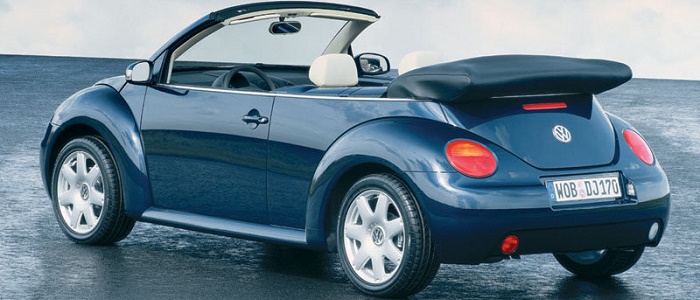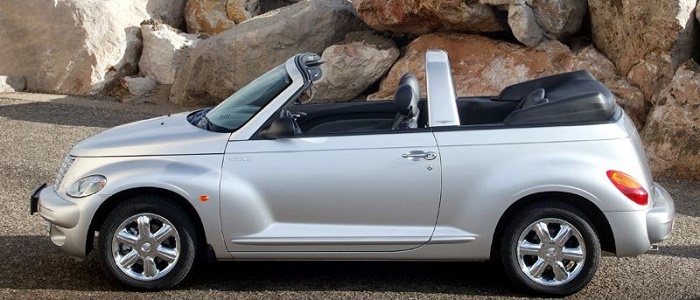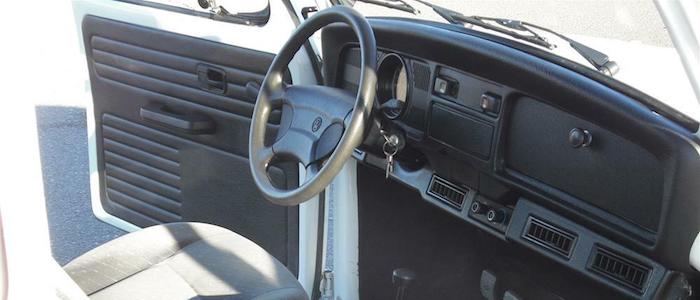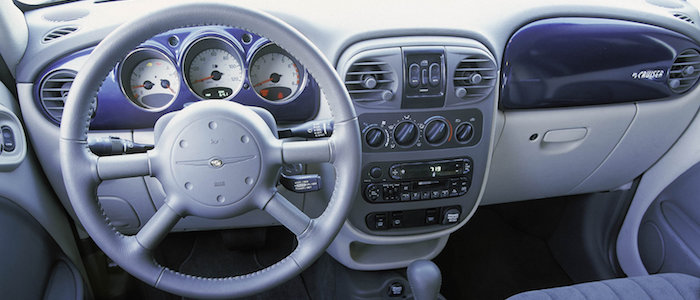Compare two cars
Compare any two cars and get our Virtual Adviser™ opinion
Dimensons & Outlines
Check vehicle history
Engine
Performance (manual gearbox)
Performance (automatic gearbox)
Expenses
Virtual Adviser's™ opinion
We are here considering two somewhat similar cars, but we can't deny some of the obvious differences. For a start, they are not even classified under the same segment, with the Volkswagen being a city car and the Chrysler representing small family car vehicle class. The first one has a Volkswagen-engineered powertrain under the hood, a 4-cylinder, 16-valves 75hp unit, while the other one gets its power and torque from a 4-cylinder, 16-valves 143hp engine designed by Chrysler.
SafetyBoth vehicles got tested by European New Car Assessment Programme (Euro NCAP), with the Volkswagen being a slightly better choice apparently. Still, apart from the official crash test results there are other things we need to be aware of. The second vehicle is a small family car and that gives it a marginal advantage over the city car competitor, at least that's what statistics show. Furthermore, if we'd like to consider vehicle mass in this context too, which we definitely should, the American car offers a considerable difference of 22% more metal.
ReliabilityManufacturers have been building their reliability reputation for decades now and, generally speaking, it appears that Volkswagen as a brand displays somewhat better results, all the models observed together. These are the results of an independent reasearch, while our visitors describe reliability of Volkswagen with an average rating of 4.2, and models under the Chrysler badge with 4.4 out of 5. Independent research findings rank Beetle as average reliability-wise, and PT Cruiser is more or less at the same level.We should definitely mention that owners of cars with the same powertrain as the German car rank it on average as 4.2, while the one under the competitor's bonnet gets 4.7 out of 5.
Performance & Fuel economyChrysler is way more agile, reaching 100km/h in 5.3 seconds less than its competitor. In addition to that it accelerates all the way to 195 kilometers per hour, 34km/h more than the other car. When it comes to fuel economy an obvious choice would be the German car, averaging around 7.1 liters of fuel per 100 kilometers (40 mpg), in combined cycle. That's 39% difference compared to the American car!
Verdict
Volkswagen appears just a bit more reliable, although the difference is truly marginal. The most important thing when deciding between any two vehicles should always be safety, both passive and active. In my opinion, everything taken into account, the American car offers slightly better overall protection and takes the lead. It all continues in the same direction, with Chrysler outracing its opponent in any situation possible, making it better choice for boy racers. It does come at a cost though, and that's the fuel consumption... It's really tough to make a final decision here, but if I'd need to, I'd say Chrysler. In any case that's my personal view, built upon all the data available to me. What should decide here though is the way you feel about the two vehicles, and I hope you'll find my guidelines useful in the process. In case you have two minutes to spare I invite you to define your needs, desires and budget and see which car would be chosen by the virtual adviser™, among thousands of similar, yet so different vehicles.































